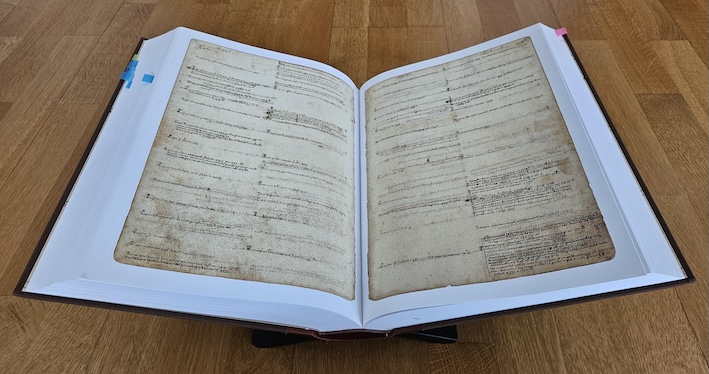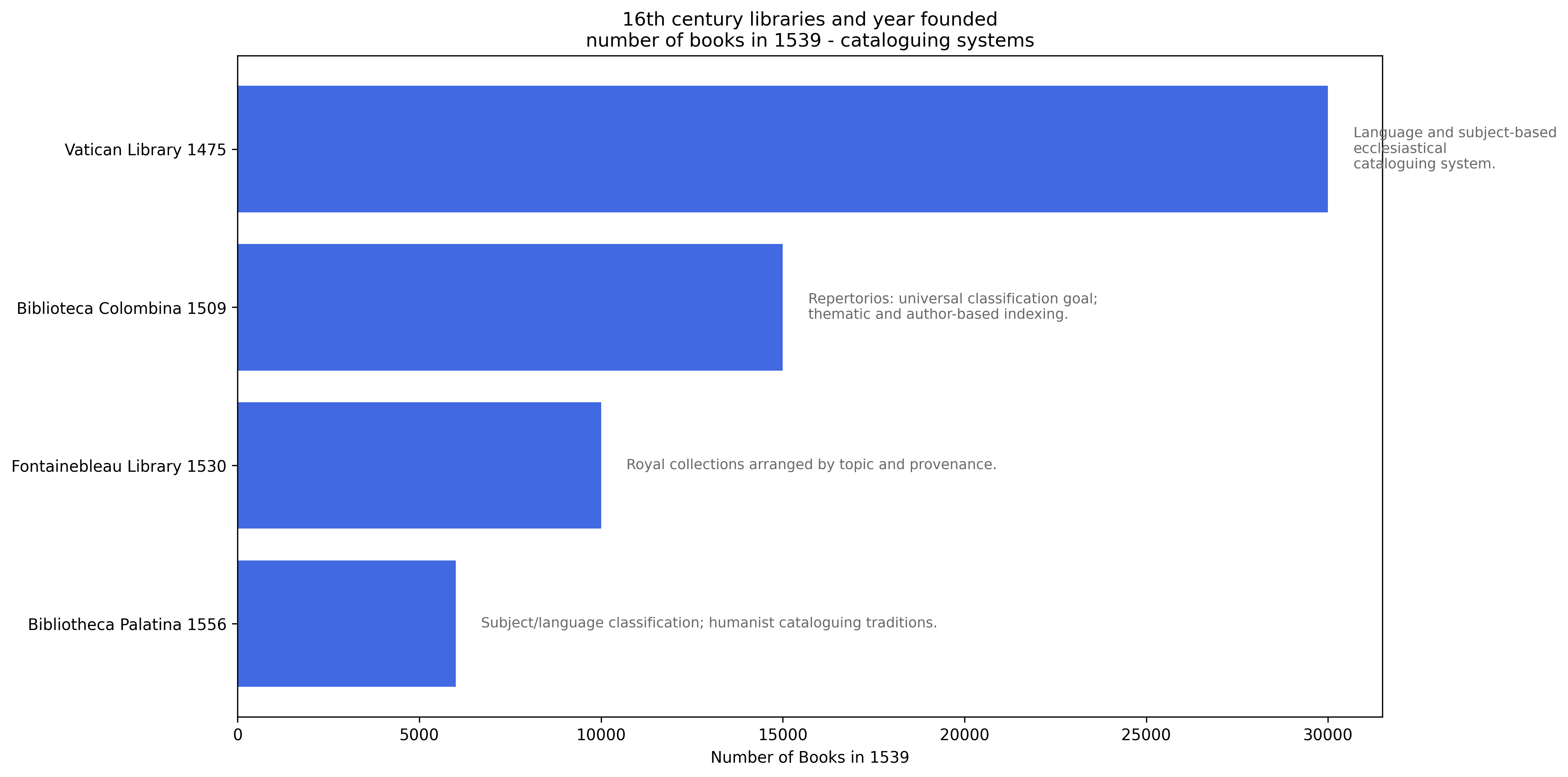 el bachiller juan perez
el bachiller juan perez
The objective of the Bachiller Project is to produce a database from the paleographic transcriptions of the Repertorios of Hernando Colón: managing this mass of data is as much a palaeographic as an informatics endeavour. A database will allow to really comprehend his Library, the connections among: content, authors, organisation at the time of his death, his future plans and other aspect that should come forward juggling with the data. The informatics side is well advanced; the paleographic side is open to a paleographer willing to take the lead for the challenge of fully completing the Library catalogue. It was very much a European library, books were mostly acquired in three buying spree across Europe: 1520, 1529, and 1535.
To collaborate just follow the Instructions for transcriber.
Structuring
Abecedarium B

Though all the Repertorios must be considered, the main thrust must be on the Abecedarium B: "That's the ultimate repertoire. That's the true source of knowledge: titles, works... and it's perfect."; there are thousands of books, articles, and papers on Hernando Colón and his Library, but none tried to tackle the transcription of the Abecedarium B, not even Marín:
"Given the large quantity of bibliographic material gathered in the index, fostered by the erudite obsessions that ruled Don Hernando, any characterization of it is, if not impossible, very complex indeed ..."
The Structure of the Abecedarium B is a first step.
The most basic facts on the Abecedarium B are unknown, such as the number of entries where estimations vary wildly: from 40,000 to over 80,000; even less information about the content which is quite daunting, the general approach is to uploaded all with the appropriate attributes. It is envisaged to use crowdsourcing based on a wiki similar to Lagarto; also, other models could be envisaged such as dividing into separated academic projects.
To put things in perspective, comparing the transcriptions of El Libro de los Epítomes to the Abecedarium B is like comparing a promenade in the Parque de Maria Luisa to scaling the Everest.
Order of magnitude
To help estimate the task at hand: the Book of Books project only addressed the Libro de los Epítomes and it runs for about four years, facsimile is available online, not the transcription; there is another starting project; the FILOL project was on lost books.
The Catálogo Concordado is also a good illustration: an ongoing work that started in 1959; it only addresses the first 4,231 books of the Registrum B. These data could be uploaded into Bachiller, though permission and access would be required.
Facsimiles
Access to facsimiles online is essential, otherwise it is hard or impossible to do the project. One of the first tasks must be to have a facsimile online of the Abecedarium B; it is assumed that the copyright holder is the Cabildo de la Catedral de Sevilla. The MAPFRE book edition is available in many libraries, mostly in Spain, not available in bookshops, copyright might be different from the original. It would be unrealistic to ask for the cooperation of a paleographer in Slovakia about a slavic language entry if the nearest copy is 300km away.
The Book of Books
facsimile
is exemplary,
in the
Available Scale
it rates as FULL:
facsimile online, full downloadable, and addressable to a page.
Paraphrasing Hernando Colón:
books not online are
dead books,
referring to this type of work.
Linked data
One should aim for linked data, in particular with other 16th-century libraries. Such a data cloud would be the base resource for comparative analysis of these libraries. The first step would be check the available data.
| Library | Wiki pedia |
Year Founded | Country | Focus/Strength | Similar To |
|---|---|---|---|---|---|
| Vatican Library | ¶ | 1475 | Papal States (Italy) | Theology, classical texts, multilingual collections | Bibliotheca Palatina, El Escorial |
| Biblioteca Colombina | ¶ | 1509 | Spain | Humanism, early printed books, personal author cataloguing | Bodleian Library, Vatican Library |
| Fontainebleau Library | ¶ | 1530 | France | Renaissance art, royal manuscripts, classical learning | Bibliothèque nationale de France |
| Bibliotheca Palatina | ¶ | 1556 | Holy Roman Empire (Germany) | Humanist texts, theology, law | Vatican Library, El Escorial |
| Royal Library of El Escorial | ¶ | 1563 | Spain | Religious texts, Greek and Latin classics, state archive | Vatican Library, Bibliotheca Palatina |
| Bodleian Library | ¶ | 1602 | England | Theology, law, classical scholarship, multilingual texts | Biblioteca Colombina, Bibliotheca Palatina |
| Ambrosian Library | ¶ | 1609 | Italy | Greek and Latin texts, patristics, early Christian writings | Vatican Library, Bodleian Library |

___
The project is named in honor of the
Bachiller Juan Pérez,
the right hand of Hernando Colón.
Memoria de la orden llevava Colón en su librería
About and notices